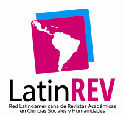From Pop and Premodern Celebrities: Towards a “Zombie Democracy”
DOI:
https://doi.org/10.26439/contratexto2017.n027.1576Abstract
This essay begins at the cultural capitals of today’s citizens in order to understand politics and make sense of it in the present times. There are three types of citizens: critics and cynics, who feel their consumption is counter-culture, who have networks as temples, who believe and disbelieve in politics; premodern citizens, who adjust their affections to their beliefs and turn their anger into a moral battle; modern citizens, who believe in ideas, parties, freedoms, institutions, rights. In this context it is understood why today our politicians are celebrities, pop intellectuals, practitioners of CEOcracy and religious and nationalist value oriented. It is said that political communication in the twenty-first century is an illegitimate craft that combines pre-modern morality with coolture, which has led democracy to become a zombie concept.
Downloads
Downloads
Published
Issue
Section
License
All of the works published are licensed under a CC BY 4.0 Creative Commons Attribution license. (updated on March 1st 2021)
The content of the journal may be shared in any material or format. The content may be adapted, contributed upon and transformed. Both possibilities are only permitted in so far as they complete the following conditions:
- Attribution: Credit must be given where it is due, a link to the license must be provided and changes, if made, must be indicated. This should be done in the manner deemed appropriate, without suggesting that the licensor promotes you or your use of the material.
Ownership rights
The patrimonial rights for Contratexto are published under a Creative Commons BY 4.0 license, allowing authors to keep the patrimonial rights to their work without restrictions.
If a work published in Contratexto were to be copied, distributed, spread, or any other activities contemplated in the aforementioned license, the author(s) and the journal must be mentioned visibly and expressly.
Self-archive
This journal allows and encourages authors to post items submitted to the journal on personal websites or institutional repositories both prior to and after publication, while providing bibliographic details that credit, if applicable, its publication in this journal.





















